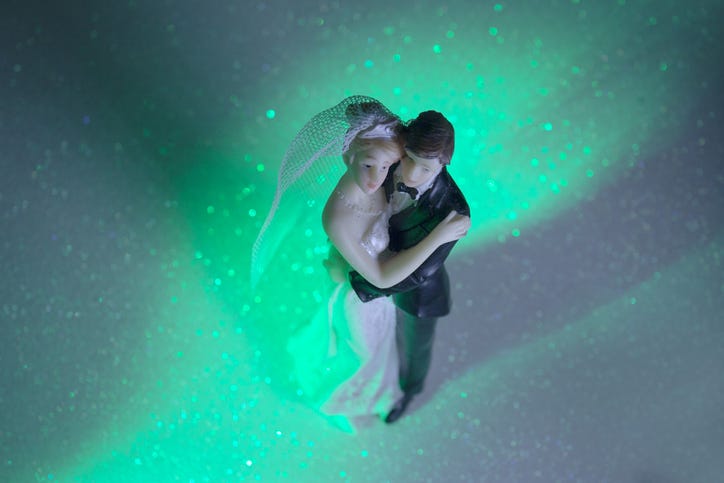
You may now kiss the avatar? Alicia Framis, a Spanish artist, is set to make AI and marriage history when she becomes the first person to marry a hologram generated by artificial intelligence.
Framis plans to marry an AI-powered avatar named AiLex this summer on the rooftop terrace of an art museum in the Netherlands. She says she will use the marriage to explore the complexities of relationships and the impact AI could have on emotions.
"It's a romantic relationship between a woman and artificial intelligence," Framis recently posted on Instagram, where she shares footage of her and AiLex doing everyday tasks like cooking. "We know that soon robots and humans will be sexual partners, but for me, the next important step is emotionally involving artificial intelligence with humans."
AiLex was created from profiles of people Framis knows and has been designed to satisfy all of her emotional needs, according to her website.
"A new generation of love is emerging, whether we want it or not, where humans will be married and in relationships with holograms, avatars, robots, and more. Just as we practice new languages with Duolingo, we will practice relationships with these entities," her website says.
Framis told the Spanish-language newspaper El Pais the marriage is part of a multidisciplinary project called "The Hybrid Couple."
"Today's society is already hybrid, we live with machines. There are people who survive thanks to their pacemaker, and every young person's best friend is their cell phone, they fall asleep with it and it is capable of changing their mood," she said, adding that her plans to marry a hologram are "a preview of the world to come."
Framis believes AI partners can be a beneficial option for individuals in need of companionship. She previously explored the topic of companionship by living with a mannequin named Pierre in a French apartment.
"I have developed many projects with different communities about specific loneliness in cities and I develop tools to help people have better possibilities to live together," she wrote on her website. After reflecting on her own experiences with loneliness, Framis creates artworks that could help or interact with others.
"I have always wanted to push art further, and now I am exploring how AI with art can decrease the feeling of loneliness in humans," she continued. "We know that robots and holograms will become personal. In my case, I want to develop an artistic way for an artist, in this case me, to develop a relationship with a hologram and explore how this relationship will come to be."
It may sound like science fiction, but Framis believes holograms will become as commonplace as telephones in the near future.
"Telephones saved the world from loneliness and filled the void of human lives. Now, holograms as interactive presences in our homes can go further," she said.
Framis said she plans to record everything for a documentary that will show the progress of her discoveries.
"AI is still very connected to science and lacks poetry, art, and warmth. I want to make an art documentary that includes drawings, interviews with other women, sketches about bodies, arms, romantic dreams, domestic situations, and the daily life of my couple," she said. "I want to explore how to integrate the hologram into my daily life."
